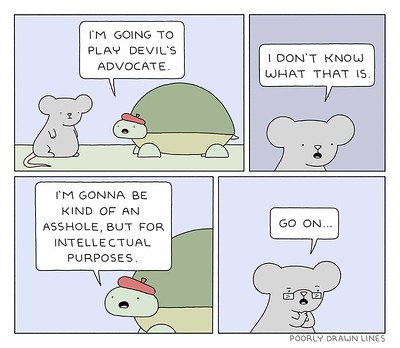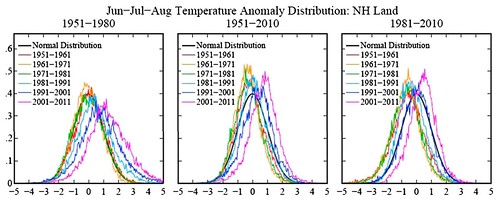 Sez the Graun, having previously drooled over the directors being personally sued. The ostensible reason for the lawsuit was that the directors were not acting in the best interests of the company, and that the claimants ClientEarth were therefore damaged. But this was obvious wank, and the ManInAWig seems to have spotted that. "the management of a business of the size and complexity of that of Shell will require the directors to take into account a range of competing considerations" is the right answer; and so just as in the much-heralded Alsup, the court isn't the right venue for solving these issues. In a way, it is great that our society is so rich that we can afford to pour money down the drain in this way; just as well there's no backlog of real judicial cases needing attention.
Sez the Graun, having previously drooled over the directors being personally sued. The ostensible reason for the lawsuit was that the directors were not acting in the best interests of the company, and that the claimants ClientEarth were therefore damaged. But this was obvious wank, and the ManInAWig seems to have spotted that. "the management of a business of the size and complexity of that of Shell will require the directors to take into account a range of competing considerations" is the right answer; and so just as in the much-heralded Alsup, the court isn't the right venue for solving these issues. In a way, it is great that our society is so rich that we can afford to pour money down the drain in this way; just as well there's no backlog of real judicial cases needing attention.2023-07-25
ClientEarth loses high court fight with Shell over climate strategy
 Sez the Graun, having previously drooled over the directors being personally sued. The ostensible reason for the lawsuit was that the directors were not acting in the best interests of the company, and that the claimants ClientEarth were therefore damaged. But this was obvious wank, and the ManInAWig seems to have spotted that. "the management of a business of the size and complexity of that of Shell will require the directors to take into account a range of competing considerations" is the right answer; and so just as in the much-heralded Alsup, the court isn't the right venue for solving these issues. In a way, it is great that our society is so rich that we can afford to pour money down the drain in this way; just as well there's no backlog of real judicial cases needing attention.
Sez the Graun, having previously drooled over the directors being personally sued. The ostensible reason for the lawsuit was that the directors were not acting in the best interests of the company, and that the claimants ClientEarth were therefore damaged. But this was obvious wank, and the ManInAWig seems to have spotted that. "the management of a business of the size and complexity of that of Shell will require the directors to take into account a range of competing considerations" is the right answer; and so just as in the much-heralded Alsup, the court isn't the right venue for solving these issues. In a way, it is great that our society is so rich that we can afford to pour money down the drain in this way; just as well there's no backlog of real judicial cases needing attention.2023-07-21
Abuse of non-linear
 People are prone to saying things like "But impacts of climate change are different — they are non-linear" by which they mean scary, dangerous, worrying, problem-causing. But this is an abuse of terminology. A damage function that is, say, zero up to 2 oC and zillions above that is non linear; a damage function that is lots below 2 oC and zero above is also non-linear. But we only care about the first sort.
People are prone to saying things like "But impacts of climate change are different — they are non-linear" by which they mean scary, dangerous, worrying, problem-causing. But this is an abuse of terminology. A damage function that is, say, zero up to 2 oC and zillions above that is non linear; a damage function that is lots below 2 oC and zero above is also non-linear. But we only care about the first sort.In the real world, pretty well everything is non-linear. So saying that the impacts of GW are non-linear is trivial and uninteresting, in and of itself. People segue far too casually from "non-linear" (trivial) to "thresholds exist" (largely undemonstrated) to "we're passing those thresholds and terrible things are happening" (using insurance in the US as an example is a terrible idea because the markey is so heavily distorted by regulation and govt intervention that market prices often don't apply).
Thresholds are lovely things in simple theoretical models but I think less applicable to the real world. Everything is fuzzy, distributed: there are rarely absolute thresholds.
Other confusions
Is GW accelerating? Just recently Hansen asserts "We did not say that the global temperature record to date shows an acceleration of the global warming rate". And yet Hansen-2020 says "Record global temperature in 2020, despite a strong La Niña in recent months, reaffirms a global warming acceleration that is too large to be unforced noise". Perhaps the addition data after 2020 to 2023 shows a slow-down?
Refs
* Are the impacts of climate change non-linear?
* Neoclassical tipping points of no return.
* Economists greatly underestimate the price tag on harsher weather and higher seas. Why is that?
* ATTP's Abandoning the idea of an “optimal pathway” for climate policy makes me think of On getting out more. This is Jonathan Koomey's stuff; it is all so badly broken that it is hard to know where to start; see my comments chez ATTP.
* American universities have an incentive to seem extortionate. They are much cheaper than the “crisis of college affordability” suggests.
* Tipping points: AH likes good ones but doesn't like bad ones. Arf.
2023-07-17
UK installations of heat pumps 10 times lower than in France, report finds
 From the Graun: The UK is lagging far behind France and other EU countries in installing heat pumps, research has shown, with less than a tenth of the number of installations despite having similar markets. Only 55,000 heat pumps were sold in the UK last year, compared with more than 620,000 in France. Twenty other European countries also had higher installation rates than the UK.
From the Graun: The UK is lagging far behind France and other EU countries in installing heat pumps, research has shown, with less than a tenth of the number of installations despite having similar markets. Only 55,000 heat pumps were sold in the UK last year, compared with more than 620,000 in France. Twenty other European countries also had higher installation rates than the UK.The report continued: "We should try to understand why this difference is occurring". Ha ha, only joking, of course it didn't. Instead we get the familiar: "The MCS report, titled Heat Pump Rollout in France and the UK 2023, called on the government to make heat pumps mandatory for all new homes...". Why this insistence on force over understanding always?
On a similar topic, we have Michael Mann saying "Good doesn't defeat evil by trying to reason with it, normalize its underlying vices, or understand its ill-founded sense of grievance. Good defeats evil by defeating it. That was true of the American civil war. And that is true going into the 2024 U.S. election." Confusing war and elections is a bad idea. And convincing yourself that you don't need to understand "the other side" is a really bad idea. What does "defeating" your "opponent" mean? Even in a war, fighting to the death is the worst option; in an election, the metaphor just confuses you, because "winning" means to persuade your opponents supporters to support you instead. And you persuade them by, ideally, reasonning with them; and you do that most effectively by understanding them.
Refs
* Heat pumps: more than 80% of households in Great Britain ‘satisfied with system’?
* Book review: The Anome / The Brave Free Men / The Asutra.
* How Much Do Intellectuals Matter? Review of America's Cultural Revolution, by Chris Rufo.
Warming: increases in variability as well as mean?
 Global warming makes the globe get warmer on average, with - naturally enough - year to year variabililty. If you're interested in detecting GW then looking at the average is best, because its a nice stable statistic amenable to analysis. But it is also a pretty boring statistic, since it's gone up by ~1 oC in the last century, leaving people prone to respond "is that it? Temperature changed by 10 oC during the course of today", or whatever. So people tend to prefer to find something more exciting to talk about.
Global warming makes the globe get warmer on average, with - naturally enough - year to year variabililty. If you're interested in detecting GW then looking at the average is best, because its a nice stable statistic amenable to analysis. But it is also a pretty boring statistic, since it's gone up by ~1 oC in the last century, leaving people prone to respond "is that it? Temperature changed by 10 oC during the course of today", or whatever. So people tend to prefer to find something more exciting to talk about.Notes
2023-07-12
Morality is custom
 Since Law is custom, and morality is a sort of localised short-range-interaction law, it follows that morality ought to be custom too. Having thought and written that, it seems uncontroversial; people are used to the idea that morality is customary.
Since Law is custom, and morality is a sort of localised short-range-interaction law, it follows that morality ought to be custom too. Having thought and written that, it seems uncontroversial; people are used to the idea that morality is customary.This is not the same as morality-is-arbitrary, which people sometimes assert. There is a not-clearly-defined ground of morality necessary for a society to be stable enough to last long enough to develope customs1, 2. If you decided to assert that "theft is morally acceptable" you wouldn't last long, even if your law prohibited theft.
Refs
* On morailty, 2008. Not really satisfactory, because I'm not distinguishing L from M, but the direction is correct.
* The Case for Libertarian Friendliness.
* Human Deaths from Hot and Cold Temperatures and Implications for Climate Change (Patrick Brown, Breakthrough Institute) via RP.
* Natural Variability, Attribution and Climate Models #6 - Science of Doom.
* The Foundations of Morality.
Notes
1. Hence the fairly common assertion that "without religion, you have no morality" is wrong.
2. See-also my Book Review: The Righteous Mind.
2023-07-06
Law is custom
 I have frequent need to say "law is custom" and yet the post I use to link those words to - Hayek vs Hobbes and the theory of law - isn't the right one, even if it is in the right direction. What I want is a more explicit reference to James Coolidge Carter's "Law: Its Origin Growth and Function". I recommend that you read it.
I have frequent need to say "law is custom" and yet the post I use to link those words to - Hayek vs Hobbes and the theory of law - isn't the right one, even if it is in the right direction. What I want is a more explicit reference to James Coolidge Carter's "Law: Its Origin Growth and Function". I recommend that you read it.Downdate: what I wrote in 2018
2025/06: And public opinion
Public opinion bolsters judicial action in part because court decisions do not enforce themselves. Judges have little direct coercive authority and must rely on public support and the cooperation of officials in other branches of government. Such cooperation and support is more likely if a ruling has substantial public approval. Most judges, especially those on the Supreme Court, are well aware of this connection.
Refs
2023-07-01
Gay cakes part two: Gay websites
 But not Grindr or any of that stuff. No, this is the Supremes weighing in on whether people can be forced to make things they don't want to make. And the answer is no, which is the correct answer, and I think for the correct reasons, too. Read a more sober analysis at Supreme Court rules website designer can decline to create same-sex wedding websites.
But not Grindr or any of that stuff. No, this is the Supremes weighing in on whether people can be forced to make things they don't want to make. And the answer is no, which is the correct answer, and I think for the correct reasons, too. Read a more sober analysis at Supreme Court rules website designer can decline to create same-sex wedding websites.